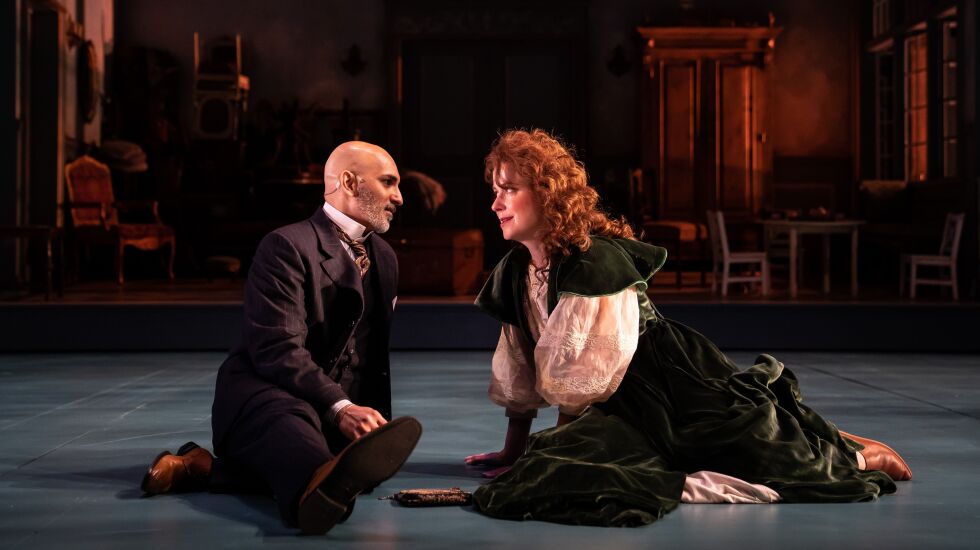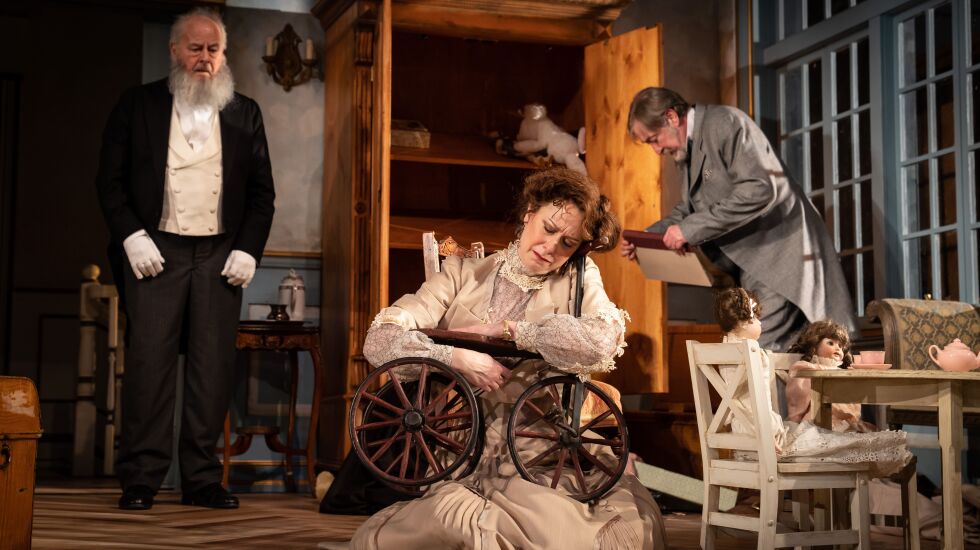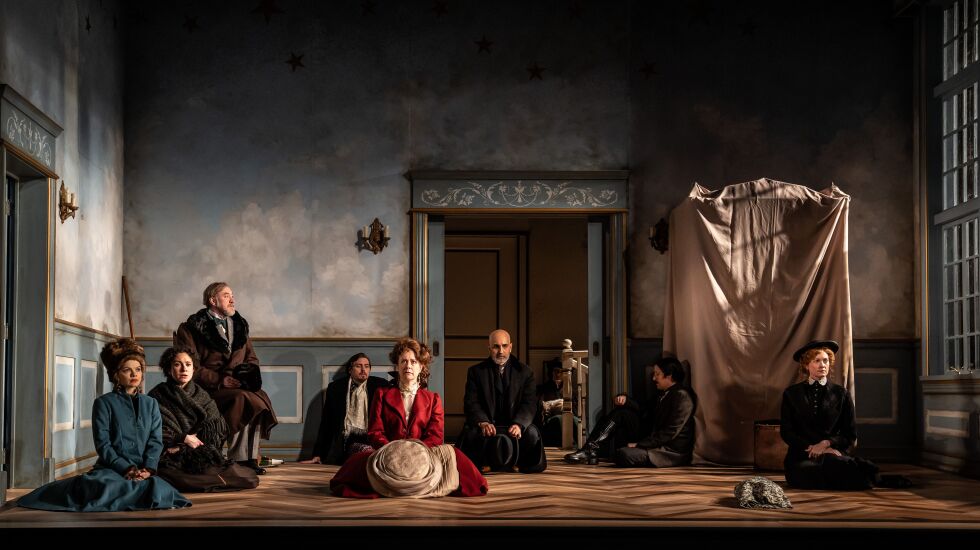
Comedy is not usually compassionate but cruel.
“Jesus, you’re boring,” the pretentious young servant Yasha (Felipe Carrasco) says to the old, old, old servant Firs (Francis Guinan) in “The Cherry Orchard,” now playing at the Goodman Theatre. “Why don’t you get it over with and die.”
It’s not a question. It’s a suggestion.
But director Robert Falls knows that, in the world of Anton Chekhov, this moment of comic cruelty — along with some others, such as people falling down the stairs or getting accidentally hit in the head — represents an exception.
Chekhov broke the rules. Most of his comic moments — amidst a play which has drawn debates from the start about its genre — are far more often rooted deeply in compassion.
In this pure, funny, beautifully bittersweet Goodman production of Chekhov’s last play, and the last selected by Falls as artistic director, the source of humor is well-pinpointed in humans’ fundamental inability to change.
You might call it humanity’s comic flaw.
In a staging that doesn’t impose a conceptual twist, Falls focuses on the characters and their being most themselves.
At the core of “The Cherry Orchard” is the fate of an estate that has been in a family for generations. Once, it brought forth beautiful fruit that sold well. But now, at the dawn of the 20th century, the world has changed. The family is drowning in debt. Without prompt action, the estate will be auctioned.
But lo and behold, the solution stares them in the face.

“I’ve found a way out,” says Lopakhin (Kareem Bandealy), who grew up on the estate as the child of serfs and has become a wealthy businessman. Just cut down that orchard and build rental cottages for the newly emerging middle class, he explains.
But facing facts and adapting to change — these are not qualities that the landowners Lyubov Ranevskaya (Kate Fry) and her brother Leonid Gayev (Christopher Donahue) were raised to value. As aristocrats, they were raised to play and charm and host parties and give away money, and in Gayev’s case, to spout sentimental speeches, which once may have been directed to local societies but now must be exercised to a piece of furniture.
What could be, and has been, treated as satire comes across here with gentleness. Kate Fry is a wonderfully ebullient Ranevskaya. We can see why everyone is drawn to her, seemingly following her from room to room. Bandealy expertly captures the contradictory impulses of the practical Lopakhin, who is at once frustrated at her unwillingness to listen and resolute in his adoration of her. When his father would beat him, the oh-so-genteel Ranevskaya would take him in and treat his wounds. Yes, she’s clueless. But she’s so good.
The fact that she can’t resist giving away money or hiring an orchestra she can’t pay for? It’s funny and it’s sad. But we get it. She can’t change.
And as we get to know the large cast of characters, Falls ensures that we can see that nearly everyone has such uncontrollable flaws. Even Lopakhin, the man who now seems to own the future, can barely open his mouth around Varya (Alejandra Escalante), Ranevskaya’s adopted daughter and the woman everyone assumes he will marry. It all leads up to one of Chekhov’s most famous scenes, as we await whether he will be capable of forming words.
Besides money, nothing brings out our comic flaws more than love. Clumsy but smiling Yepikhodov, the estate bookeeper, (Will Allan, who expertly times the sounds of squeaky boots) has proposed to the maid Dunyasha (Amanda Drinkall, firmly committed to her character’s romanticism). But just as he refuses to acknowledge that she has fallen in love with Yasha, Dunyasha can’t see that Yasha values her less than fancy suits and champagne. And although perpetual student Petya Trofimov (Stephen Cefalu, so appropriately over-earnest), expresses that he’s “above love,” Ranevskaya pops his illusion by noting that it simply means he’s still a virgin.

Ana Kuzmanic’s lush costumes draw us into the period specificity and social order, while Todd Rosenthal’s set — which moves between elaborately detailed and minimalist — captures the grandeur and decay of the former aristocracy. The first and last scenes are set in a former nursery and playroom. That has never struck me as quite as important as it is in this production. We can see how Fry’s Ranevskaya gravitates toward her old tea set and wishes nothing more than that she could set everyone down for an imaginary party. She’s not silly; she just longs for days before her life had grief and money problems.
Falls leans into the comic in Chekhov, but never loses that sentiment — of loss, of human frailty. After Fry and Bandealy, the most essential performance here comes from Guinan as the ancient, deaf Firs, who in his own day resisted change and now goes around muttering that everyone is a “nincompoop.”
Change is inevitable, and time can’t be stopped, and eventually, perhaps, we’ll all, like Firs, be left behind.







